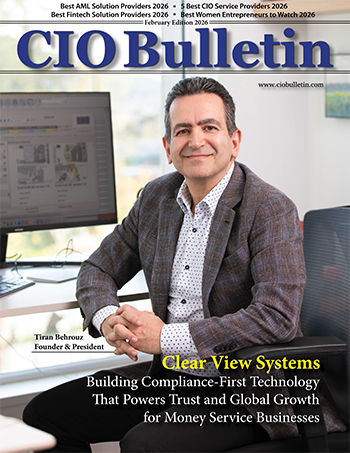Home Industry Digital marketing How to Choose the Right CRM fo...
Digital Marketing

CIO Bulletin
08 July, 2025
Choosing a CRM is one of the most critical decisions you’ll make as you scale your business. The right system can help you organize leads, track deals, and build lasting relationships with customers. The wrong one can drain resources, frustrate your team, and stall your growth.
Whether you’re considering well-known platforms like Salesforce, HubSpot, Zoho, or Pipedrive, it’s important to look beyond flashy features and focus on what truly fits your workflow. Let’s walk through some essential criteria to keep in mind—and a few common pitfalls you’ll want to steer clear of.
Before you even start comparing software, map out your sales process in detail. How do leads come in? What steps does your team take to nurture prospects? What kind of follow-up happens after closing a deal?
A CRM should feel like an extension of that process—not a system that forces you to adapt to someone else’s idea of how sales “should” work. For example, if your pipeline has multiple stages and relies heavily on visual tracking, tools like Pipedrive are designed with that in mind.
No matter how powerful a CRM claims to be, if your team struggles to use it, adoption rates will suffer. Look for intuitive dashboards, simple navigation, and clear reporting. Ideally, your salespeople shouldn’t need hours of training just to update a deal or add a note.
User experience matters as much as features. Take advantage of free trials or demos to see how the interface feels day to day.
Your CRM doesn’t exist in a vacuum. It needs to connect with the other systems you rely on—email marketing platforms, invoicing tools, help desks, and more. Integration saves time, reduces manual work, and improves data accuracy.
Check whether the CRM supports native integrations with your favorite apps, or whether you’ll need to invest in custom connections.
Every business has unique needs. The more configurable your CRM is, the better it can adapt as you grow. Custom fields, pipeline stages, automated workflows, and reporting dashboards can all be tailored to your specific requirements.
This is where working with a Pipedrive consultant can make a real difference. An experienced consultant will help you design a setup that mirrors your business processes, ensures your team is trained effectively, and saves you from the trial-and-error approach that often slows down CRM projects.
Many companies underestimate the total cost of ownership. Monthly subscription fees are only part of the equation. You may also encounter charges for add-ons, integrations, advanced reporting, or increased storage limits.
Be sure to review the full pricing structure carefully and budget for professional implementation if needed.
A CRM should empower your business, not complicate it. By taking time to evaluate your options carefully, you’ll find a platform that helps you build stronger relationships and close more deals. And if you want to get up and running faster, working with an experienced consultant can be one of the smartest investments you make.

Insurance and capital markets







